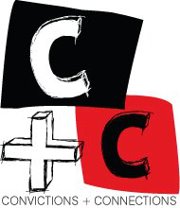ATF 2011 – Open Space Forum
- September 15th, 2011
- Posted in ATF 2011
- Write comment

The second morning took me by surprise. A 9 o’clock scheduled start surprised me at about 8:34 as I was mid-breakfast and lazily checking the ATF schedule for Thursday. The plan was supposed to be – breakfast, then write up the official ATF 2011 welcome I missed writing electronically (it’s in the form of pen and paper in my bag) …then coffee and then a casual walk to the Powerhouse.
It wasn’t to be.
I barely showered. I ate breakfast at the speed of light and hot footed it across the park. I arrive and say to the ever amazing Rebecca Meston – “Bec where should I be?” “The Visy Room” She smiles. I make it inside just in time. The room is not even half full. What a relief!
Fourteen minutes in and Wesley Enoch, Artistic Director of Queensland Theatre Company is still wrangling and welcoming in equal measure as latecomers straggle in… a hug, a gentle gibe…some feeble excuses, some open and bright introductions.
“In 2021 Courageous, relevant and dynamic – what are we going to do to get there?”
What is the unique position that you occupy – the perspective that you uniquely occupy.
What are the priorities of the theatre industry? Enoch asks us what if we spoke with a united voice?
He introduced a mode of engaging with and developing ideas. http://www.openspaceworkshop.com/introduction.html
The Open Space framework is based on seven basic principles:
1. Whoever comes are always the right people
2. Whatever happens is for the good
3. (Weather) conditions should be taken for what they are
4. The composition of the groups is determined by chance
5. Everyone may start whenever they feel like it
6. Everyone may stop whenever they think it is time to
7. Everyone is free to move around as they like
THE IDEAS
Digital Theatre – documenting and distributing
Heightening the value of art & culture in everyday life –
Spontaneity –
Disability and Accessibility –
Young Artists watching other young artists –
Backstage becoming centre stage –
Relevance of theatre
New ways of sharing work sharing and beyond –
New ways of commissioning and developing new work –
A project in language in Terrant Creek –
Interrogating the language of Cultural Policy –
Removing family programming
Terrifyingly frank discussions between artists and critics –
Free performances in public spaces –
Innovate boards of management –
Cross racial casting & acting –
National independent artists network –
Ban on dead writers –
Creating the conditions for imagination –
Environmental sustainability plan for –
Rethinking resources for artists –
Social Network/ Online sharing and connecting –
Alternate business models without government funding –
Independent theatre hub (space) for sets, costumes etc –
Audience development with people that don’t come to the theatre –
National artistic director that matches artists to regions –
Effectively negotiating cross-company collaborations –
Ways to get more Australian plays on stage –
Auslan theatre –
Do we need a national cultural ministry –
Redefining what a theatre company is –
Remote (not just regional) Australia as creators as well as receivers of work –
Reinvent the funding grant system to stop resources being spent on writing grants –
Responsible internationalism and new kinds of festival –
How do we nourish critical discourse?
Can the arts be the leading industry of climate change?
(The blithest of all late arrivals at 10:07am…Stephen Armstrong (Theatre Board Chair) – freshly showered and coffee in hand… we all chuckle… it’s a welcome distraction. We are now half way through filling in the possibilities of discussion – and getting a bit ratty and so… we continue – )
Could we subsidize to young/new audiences to the degree that Opera is subsidized?
Creative micro-touring –
Sharing business tools –
Pathways to get artists in school and national curriculum and the arts –
A national stipend for artists –
How to protect audiences from bad theatre experiences –
Parent as artists – how can they be supported especially in regards to touring –
Putting digital media in the hands of artists not marketing departments –
Especially since the abolition of the ABC arts programmes, how can we protect and nourish critical discourse?
The rules of this are then that we are to go off to different areas for 20 minutes to discuss and to listen – Enoch recommends the surrendering of semantic debate and to just try to address the issues.
For me – someone always ready for an opinion (apologies to Dan Evans, Stephen Armstrong and the Hans Christian Anderson Cookie tin picnickers last night as I ranted and railed about … well… everything from funding models to the role of women in creative power… if it wasn’t for the snacks… I really wouldn’t have shut up. On this occasion I am going to surrender to the role of listener. I want to hear not only what the conversations are about but HOW the arguments are being formed.
There is often a sense with these styles of forums and discussions that the chance to be heard inspires a kind of wild and untamed blurting – that may need an interpreter – the ideas of artists are often so prolific we can all get lost in conversation.
(OK that’s enough and yeah… I need coffee at this point…)